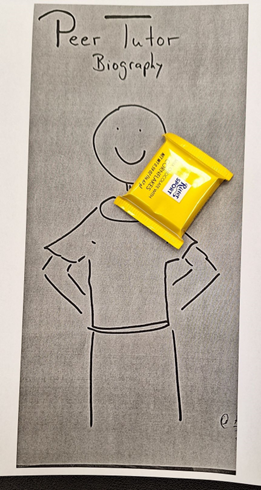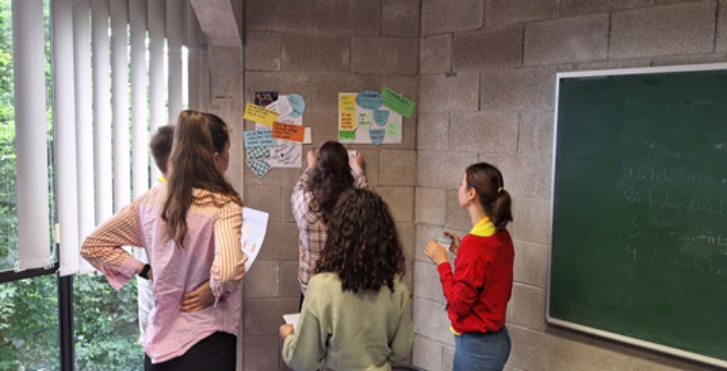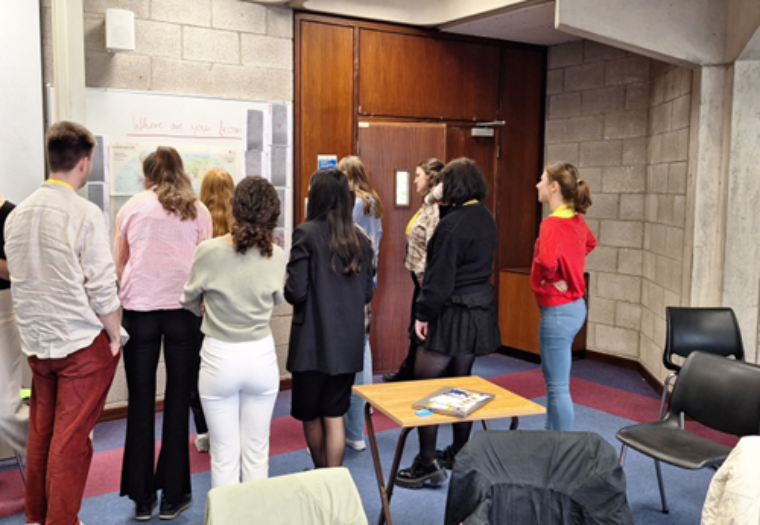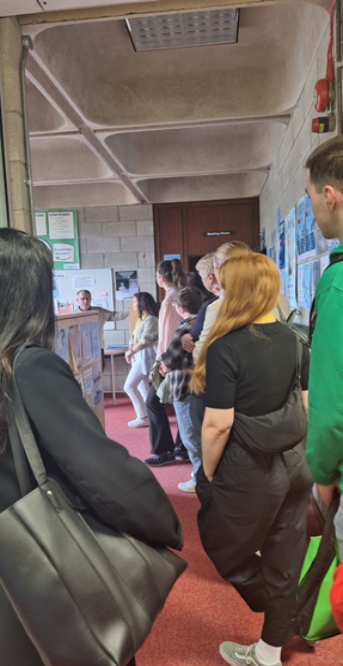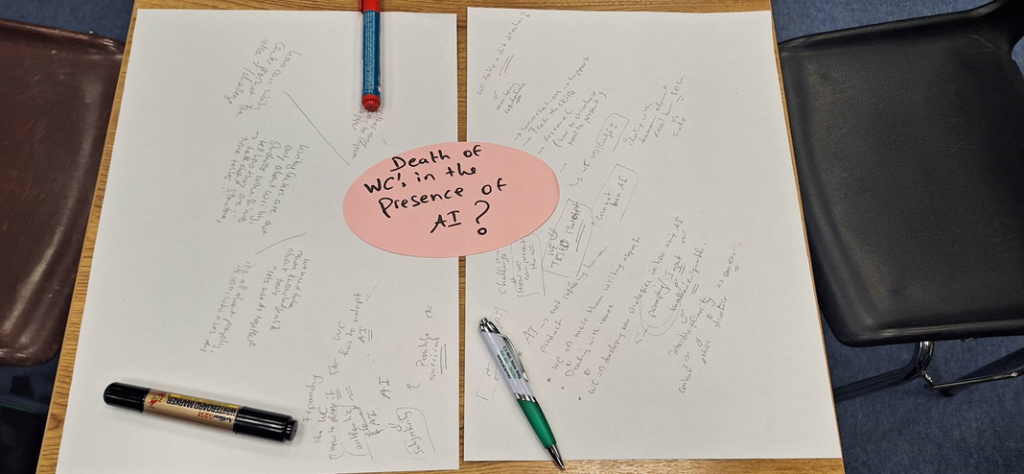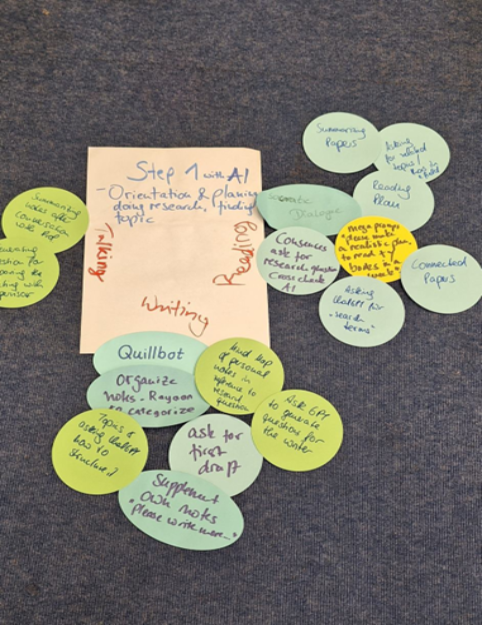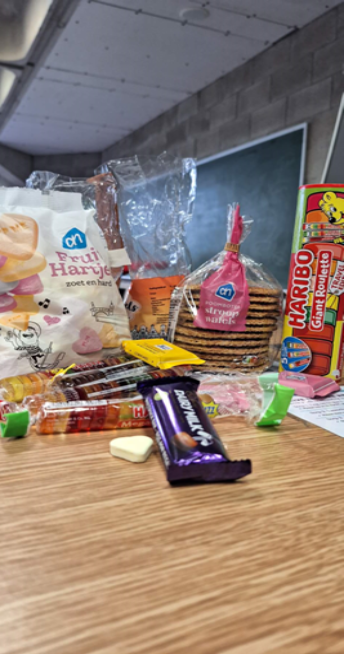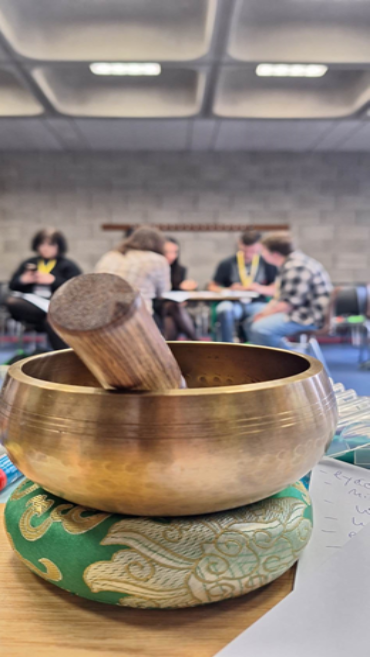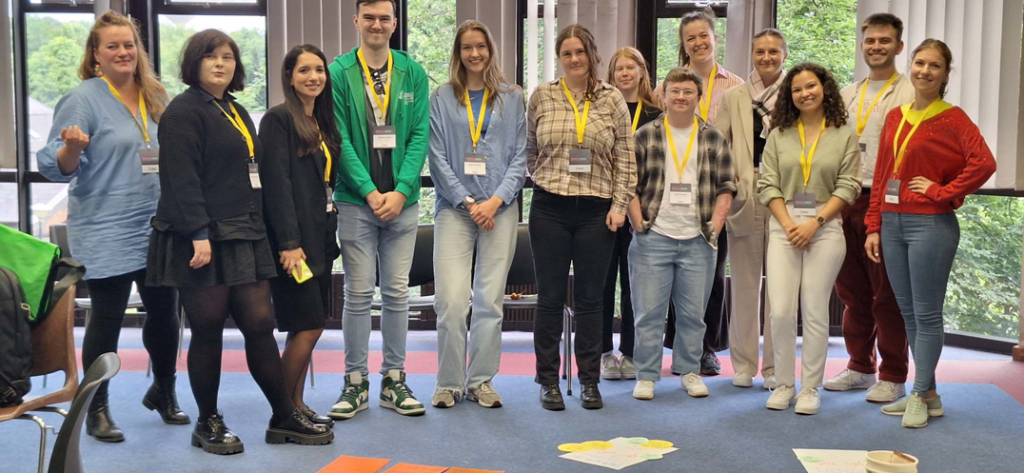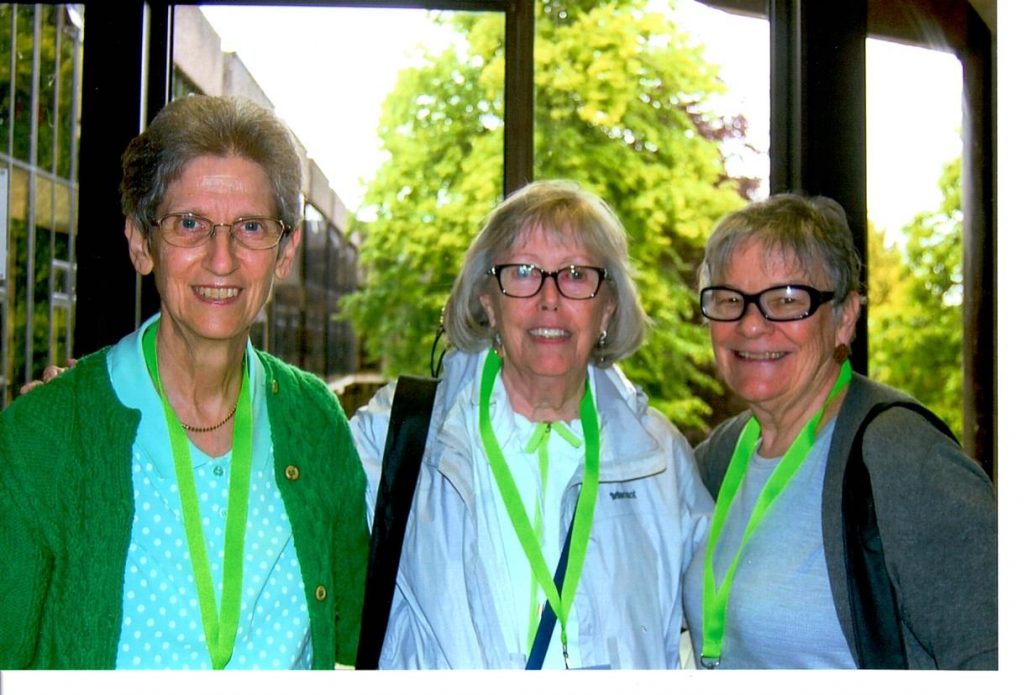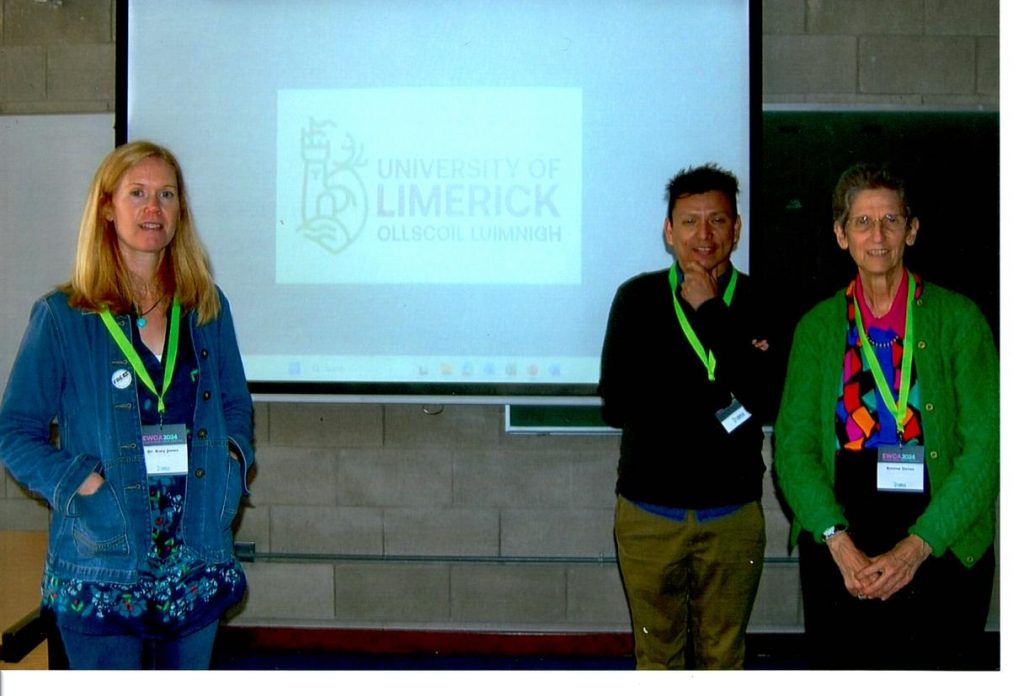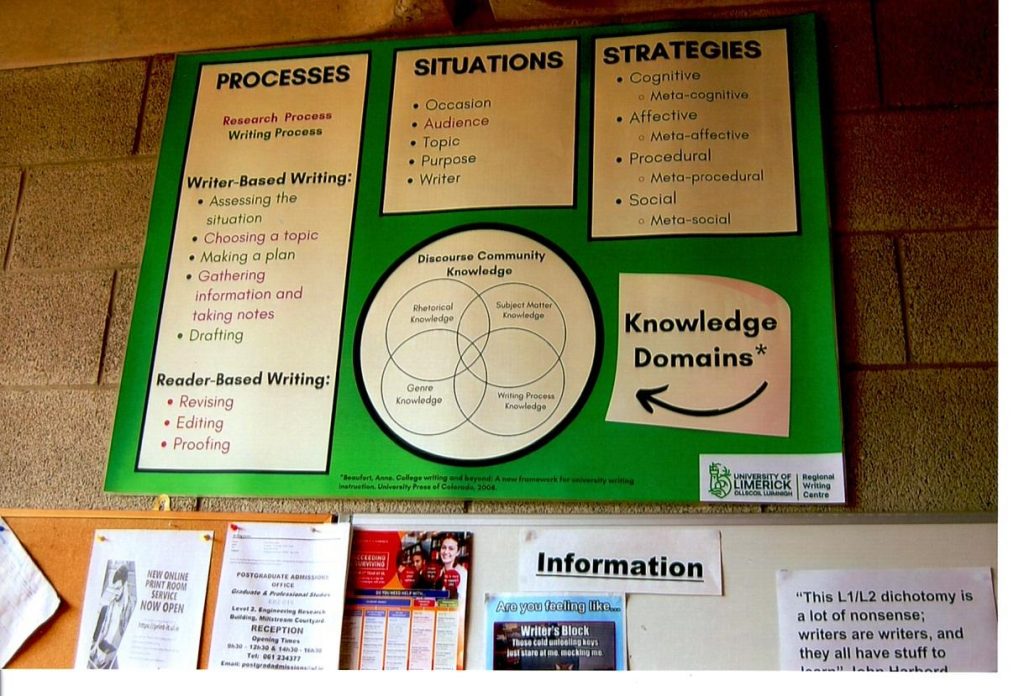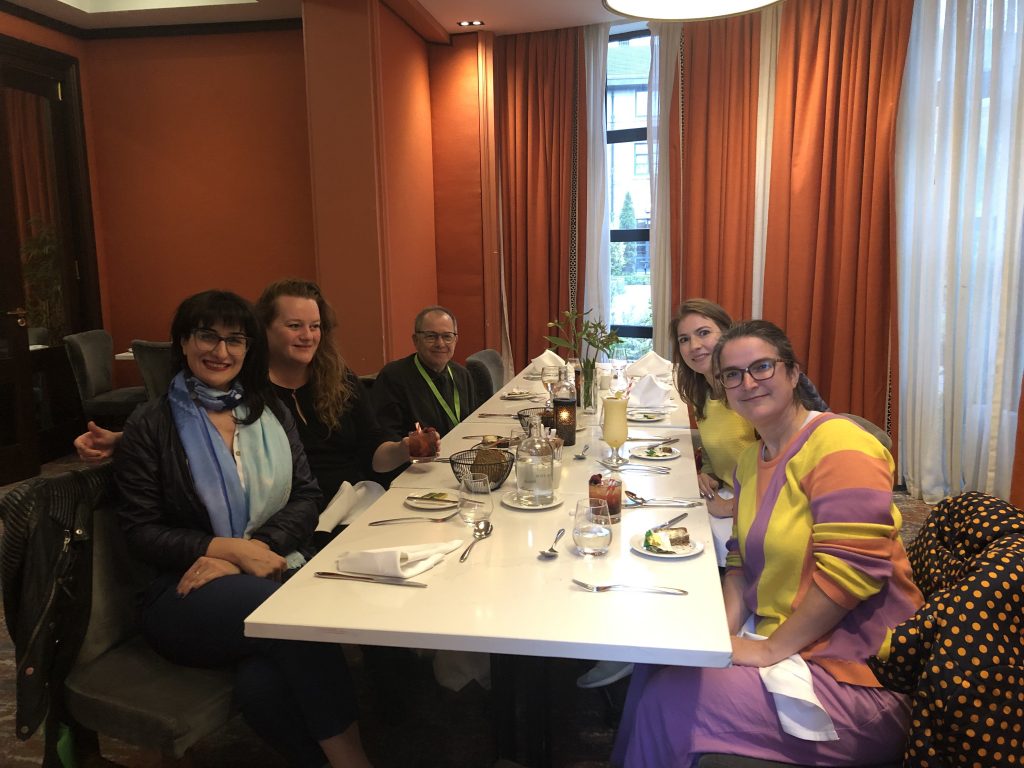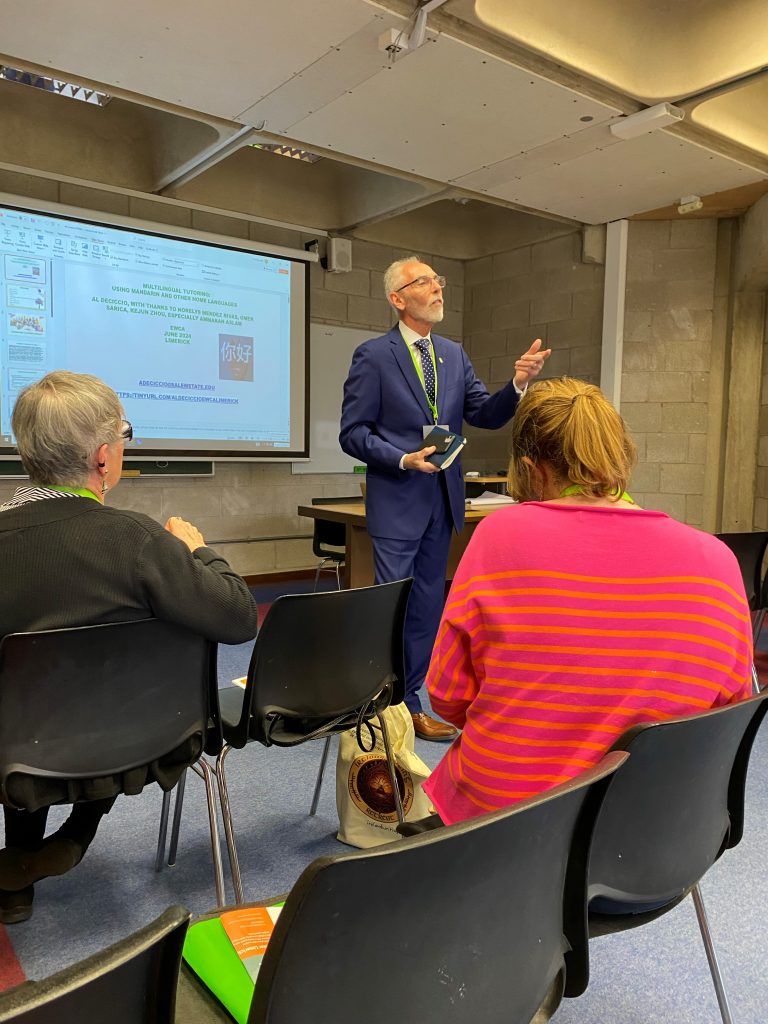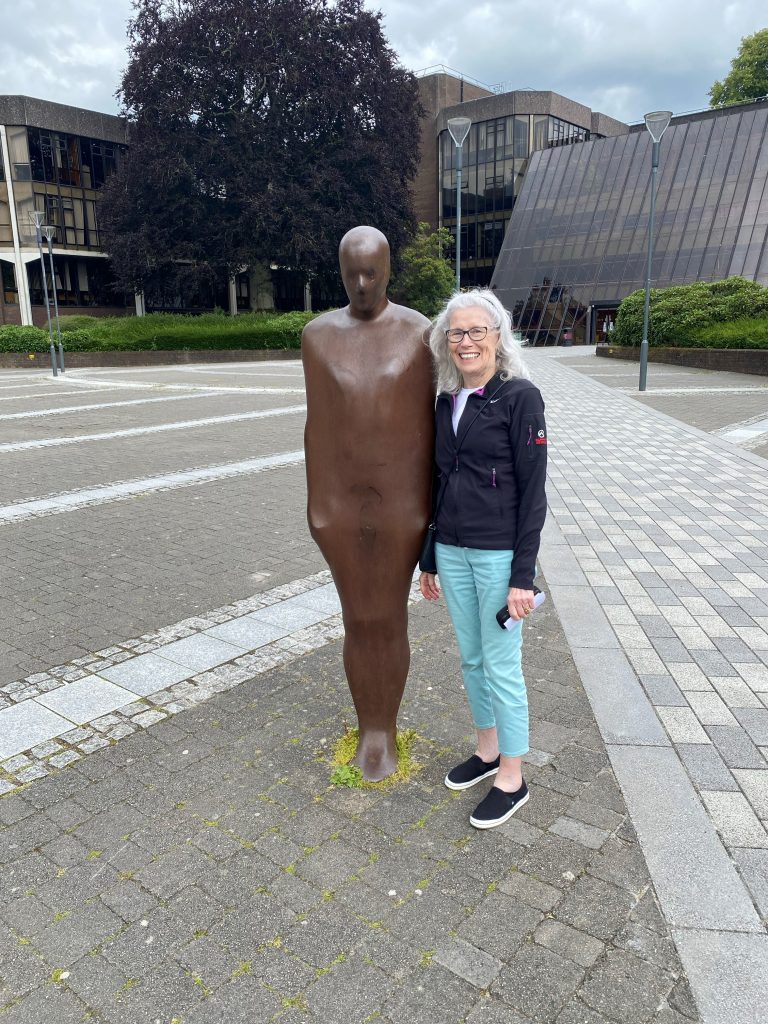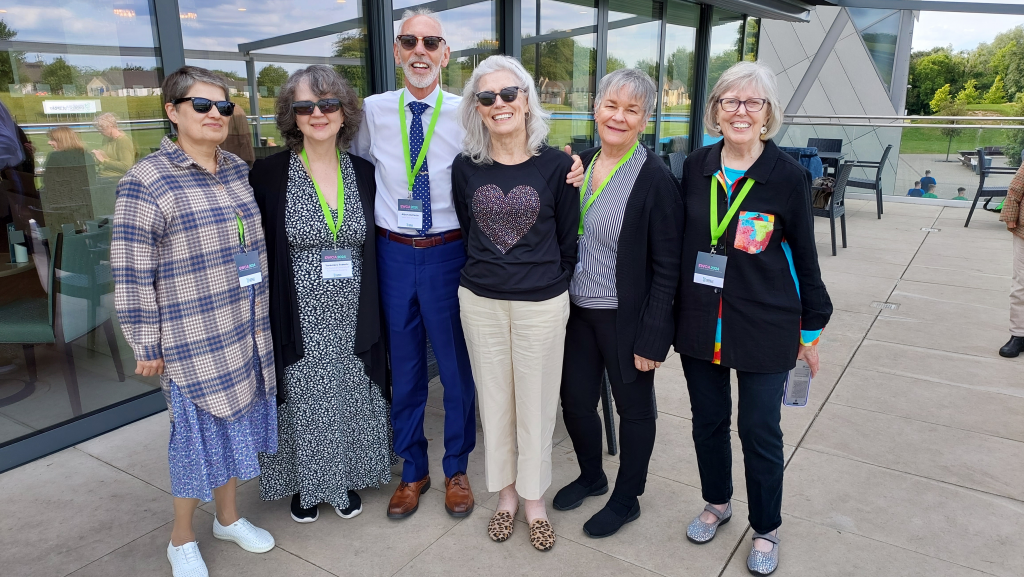July 6th to July 8th, 2022
Hosted online by the writing center of the University of Graz (Austria), the theme of the European Writing Centers Association 2022 Conference was ‘Writing Centers as Spaces of Empowerment’, as pointed out by conference host Doris Pany (Graz) in the conference Call for Papers, “Higher education is widely perceived as a promise of empowerment”. Certainly, the romance of writing center work is that we foster competency, and thereby participation, in not only academic discourse but in the wider conversations unique to the democratic process that have consequences for how we govern ourselves, are governed by others and the extent to which we have access to those that govern. We strive to help those who come to us to become better writers, and in an academic context, that means more informed, critical thinkers, in short, good scientists: honest, trust-worthy, fair/balanced and respectful, leading by example, responsibly sustaining standards necessary to the maintenance of the integrity of one’s self as a citizen and a scholar and to the maintenance of the integrity of those institutions of which we regard ourselves as members.
The consensus was that the conference was a great success, probably exceeding everyone’s expectations given that events conspired in the eleventh hour to force what had been a long-anticipated live conference to become what may have understandably been perceived by many as another dreaded online conference. Endless thanks go to Doris’s Conference Organizing Committee: Lisa Wurzinger, Franziska Gürtl and Lukas Georg Hartleb, as well as those less visible but none-the-less diligent Sigrid Schneck and Katharina Deman. The conference ran so flawlessly, it was easy to forget that it was totally online. It was a wonderful experience. The idea of utilizing an online networking app at the end of the day was just icing on what was already a rich, satisfyingly flavourful cake.
The flawlessness of the delivery only made the quality of the content more apparent. For three days, 3 keynote presentations, 38 presentations, 5 workshops, 6 roundtables, 3 networking sessions and a number of Pecha Kuchas and posters addressed the empowerment of students, tutors, subject specialists, writing center directors, writing centers themselves and even the empowerment realized by retired writing center directors. All these sessions were attended and carried by 165 international participants including 48 students. The many approaches and strategies for the achievement of empowerment presented in these various forms of engagement are testament to the accuracy of Brad Hughes’ categorical breakdown, in his keynote presentation, of the writing center expertise and commitment on which writing centers are built. Approaches and strategies for empowerment included academic literacies approaches, other linguistic approaches, genre analysis, social strategies such as writers’ groups and retreats, collaborative writing, contrastive language strategies, translingual approaches, “small-teaching” and “working alliance” approaches and the use of actor-network theory and “writing as liberation”. Equally impressive and edifying were the number of marginalized groups treated: international students, other language learners, at-risk students, first-year/transitioning students, multilingual students and neuro-diverse students. Empowerment through the engagement with the emotional labor of writing, an often-neglected area, was addressed as was tutor-led writing centers, Writing Across the Curriculum (WAC) and Peer Assisted Learning programs as agents for empowerment of both subject specialists and students. Finally, the issue of sustaining pedagogical integrity, particularly in the face of the corporatization of higher education, and Brad Hughes’ talk on “connectivism” spoke to the empowerment of writing centers themselves. Beside this variety of perspectives on empowerment, the conference also engaged with the very future of the EWCA itself. In the general assembly the EWCA members discussed their goals for the upcoming years and elected a new Executive Board for the period 2022-2024.
It is our hope that as we move away from our experience of the EWCA 2022 Conference toward the next biennial conference in 2024, those who heard Brad’s presentation will reflect on his ethical stance on writing centers, that they should be pedagogical workshops, continually experimenting, challenging unexamined assumptions, adapting to new contexts for writing and for teaching writing, engaging in plenty of “epistemic trespassing”.
Thank you all, members and non-members alike, for your patience, participation, comraderie and encouragment.
Best wishes from the EWCA 2020 Organizing Committee at schreibzentrum.uni-graz.at
Doris Pany, Leiterin des Schreibzentrums
Lucas Hartleb, Mitarbeiter des Schreibzentrums
Franziska Gürtl, Mitarbeiter des Schreibzentrums
Lisa Wurzinger, Teamassistenz, treffpunkt sprachen – Zentrum für Sprache, Plurilingualismus und Fachdidaktik
UNIVERSITÄT GRAZ, Österreich

